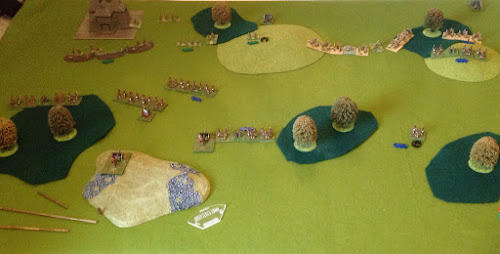My latest reading has been 1864, which I bought before the I knew the TV series was to be shown on UK television.
The book is much more of a narrative history of the war than the TV series. Understandably for a wider audience, the TV version puts much greater emphasis on the human interest stories, and has a modern day look back that frankly didn't add much to the story. Despite that, I thought the battle scenes were very well done and was up to the standards of Nordic drama we are getting used to.
The story of the War of 1864 is pretty extraordinary. To the modern reader the idea that Denmark would provoke a war against the might of Prussia and Austria, seems absurd. Of course it was a tragic miscalculation, but not quite as absurd as it looks today.
Denmark had sort of triumphed in The First Schleswig War between 1848 and 1852. However, the problem of largely German duchies, particularly Holstein, being part of Denmark was not resolved. The Danes had done little to modernise their army after the war and this time they had little international support. The woeful Danish political leadership provoked the war by integrating the Duchy of Schleswig into the Danish kingdom in violation of the 1851 Treaty. Bismarck couldn't believe his luck and mobilised the more modern German and Austrian forces.
The book and TVs series cover the evacuation of the outflanked Southern defence line at the Dannevirke and the fatal defence of the inadequate position at Dybbol. Prussian artillery heavily outnumbered the Danish artillery and Denmark was forced to sue for peace. As a result of the peace settlement, the land area of the Danish monarchy decreased by 40% and the total population reduced from 2.6 million to 1.6 million.
I probably enjoyed the book more than the TV series, although both were very good.
The British Prime Minister Lord Palmerston said: "Only three people have ever really understood the Schleswig-Holstein business—the Prince Consort, who is dead—a German professor, who has gone mad—and I, who have forgotten all about it". Well, we all understand it a lot better now!




